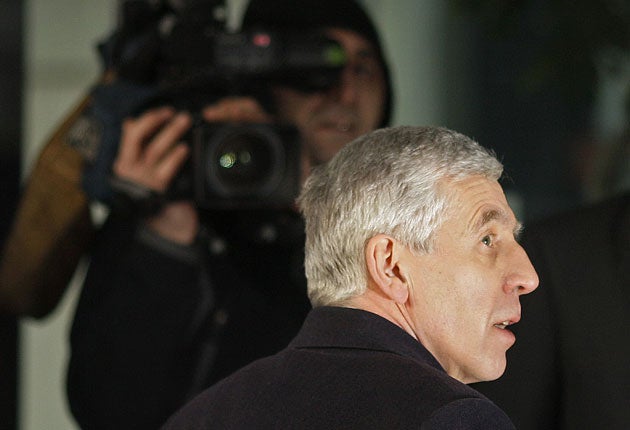Angry Straw to tell Chilcot he didn't ignore Iraq advice
Furious Justice Minister hopes to clear his name over claims that he dismissed expert legal guidance

A furious Jack Straw will attempt to "set the record straight" when he returns to the Chilcot inquiry tomorrow, days after his former legal advisers claimed the Justice Secretary had ignored warnings that the invasion of Iraq would be illegal.
Mr Straw has been recalled to the inquiry to further explain his actions, amid criticism of his conduct in the run-up to the war.
Mr Straw, who was foreign secretary in 2003, is believed to have been particularly upset by the evidence of his former chief legal adviser, Sir Michael Wood. The former civil servant told the Chilcot panel that Mr Straw had rejected his advice that invading Iraq without UN backing would break international law.
Sir Michael claimed that Mr Straw had dismissed his advice as "dogmatic and international law was pretty vague". Sir Michael also claimed the minister "wasn't used to people taking such a firm position".
The revelations came amid growing claims that ministers had systematically overruled the advice of advisers in their haste to join the US in military action against Iraq. The then attorney-general, Lord Goldsmith, confirmed that he had originally ruled the invasion would be unlawful but subsequently changed his mind.
Allies of Mr Straw last night complained that the claims were "grossly unfair" and portrayed him as "an over-bearing boss who was hell-bent on Britain going to war". "He will welcome the opportunity to set the record straight," said one last night. "It was not a case of him saying 'yes' and the advisers saying 'no'; it was much more complicated than that."
An aide to Mr Straw said his appearance tomorrow would concentrate on the legal issues raised during the Chilcot hearings in recent weeks, as well as on the situation in Iraq immediately after Saddam Hussein had been deposed. The aide added: "He will say that he has always given very great weight to legal advice throughout his time as a minister. He encourages an environment where officials are able to put their opinions and he did so at the Foreign Office.
"He would never, and has never, ignored any such advice. But there have been times when he has challenged it and was proved correct in doing so in the courts. In the case of Iraq, it was ultimately the attorney-general's view which was critical."
Mr Straw originally gave evidence to the inquiry last month, when he said backing the invasion of Iraq was the "most difficult decision" he has ever taken. He also told the panel he acted "on the basis of the best evidence available at the time".
However, the evidence to the inquiry of his legal advisers in subsequent days raised questions about Mr Straw's decisions.
Take one: An informal chat in a London club
Sir John Chilcot, former civil servant, treated Tony Blair with almost painful deference during his marathon evidence session at the Iraq inquiry last month. But he could have greeted him as an old acquaintance as 13 years before, they had met in a much more sedate – and far less public – arena. It was so discreet that few knew about the encounter until now.
The then Mr Chilcot had faced Mr Blair, Opposition Leader, in the exclusive Travellers Club, in Pall Mall, London. Mr Chilcot, the top civil servant at the Northern Ireland Office, had consented to the most unusual clandestine meeting with Mr Blair, almost five months before he became prime minister.
Civil servants are allowed to meet Opposition politicians for briefings in the run-up to an election, but these are usually held in controlled conditions in departmental headquarters. That this was held in a private club where Mr Blair later met espionage chiefs, demonstrates the importance of the nascent peace process to his political calculations. Mr Chilcot was knighted on his retirement at the end of that year. The meeting is recalled by Mr Blair's chief-of-staff, Jonathan Powell, in his book Great Hatred, Little Room.
Brian Brady
Join our commenting forum
Join thought-provoking conversations, follow other Independent readers and see their replies
Comments